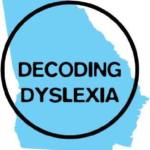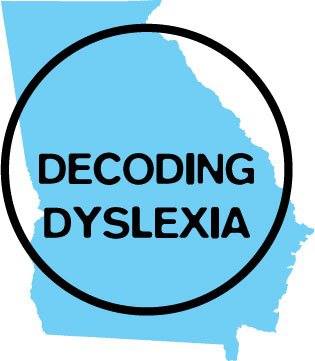Atlanta, GA March 29, 2019 — Decoding Dyslexia Georgia applauds the passage of SB 48. The bill will, among other things, define Dyslexia in Georgia code and provide screening for kindergarten students and some 1st through 3rd grade students. The bill will now be sent to Governor Kemp’s desk.
“Senate Bill 48 provides training and resources to help educators identify students with dyslexia. This legislation will enhance educational outcomes by providing assistance to those who are struggling in the classroom. I look forward to gathering with advocates and families as Governor Kemp signs this legislation into law. Together, we will ensure a brighter future for all Georgia students.” said Chairman P.K. Martin IV of Lawrenceville.
“Today was a huge step forward for Georgia’s students, as 1 in 5 are affected by dyslexia. We all agree that it is absolutely essential for all students in Georgia to learn to read and with the passage of this bill, we are one step closer to that being a reality.
“Thank you to former Senator Fran Millar and Senator P.K. Martin for their tireless work on this issue and for taking the time to listen to the thousands of parents, grandparents, teachers and most importantly, dyslexic students who raised their voices for change.
“Thanks also to all of the members of the Senate Study Committee on Dyslexia, the Senate Youth and Education Committee, and the House Education Committee for their compassion as our children testified and their commitment to this issue.” said Tina Engberg, State Leader, Decoding Dyslexia GA.
The passage of S.B. 48 puts Georgia on a path to fundamentally change the outcomes for many students with Dyslexia in Georgia schools.
Specifically the bill will:
- Include the definition of dyslexia into the GA Code. As many as 1 in 5 students may be dyslexic and the lack of understanding and knowledge about dyslexia has troubled our school systems for years.
- The creation of a Dyslexia handbook by the Department of Education. This will help teachers and schools to understand dyslexia and better serve students who exhibit characteristics of dyslexia.
- Training for future teachers. This will produce a new generation of educators who have widespread awareness and new tools to teach dyslexic students and lead them to successful outcomes.
- A three-year pilot program in three school districts. This will offer an opportunity to train teachers in Structured Literacy practices and follow real metrics on improvement in reading skills. It will also provide financial evidence of cost savings using improved teaching methodology.
- Universal screening of all Kindergarten students and some students in grades 1-3. This will help to identify children who may be dyslexic earlier, before they start to fall behind their peers. Early identification and intervention for dyslexic students will turn the tide on difficult statistics that bear out what it looks like when Dyslexia is not addressed: Lengthier time to intervene if found later in elementary school (Joseph, Torgeson 2004, 2007); Three times higher likelihood of dropping out of high school (NCLD); Prisons have very high levels of illiteracy, prompting Federal screening for Dyslexia of prison populations (First Step Act of 2018).
Contact: Tina Engberg, State Leader, Decoding Dyslexia GA








